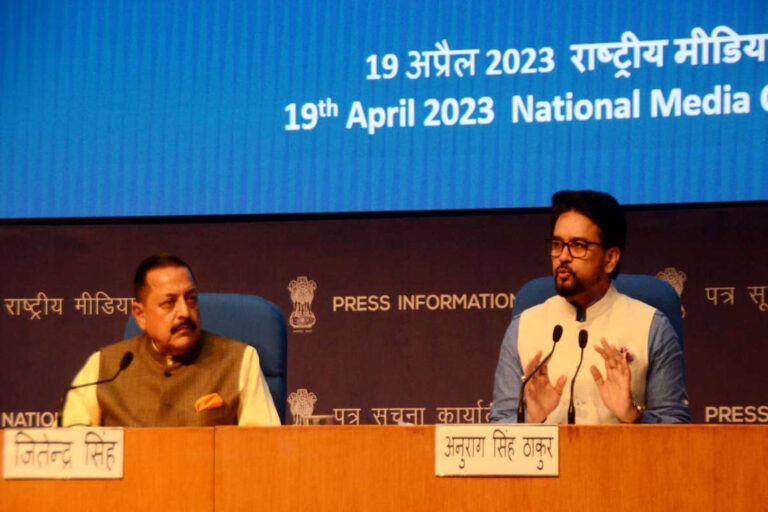
On Wednesday, the Union Cabinet, which is presided over by Prime Minister Narendra Modi, gave its approval to the National Quantum Mission (NQM), which will have a total cost of Rs.6003.65 crore over the next eight years. The mission’s objective is to seed, nurture, and scale up scientific and industrial R&D to new heights, as well as to create a vibrant and innovative ecosystem in Quantum Technology (QT).
Anurag Thakur, Minister of Information and Broadcasting, and Jitendra Singh, Minister of State for Science and Technology, made the announcement regarding this matter during a press briefing. During the years 2023–2024 through 2030–2031, the budgetary allotment for the Mission will be spent.
The Mission will push India to previously unimaginable levels of scientific capability, bringing it on par with the six select nations that are creating the technology, boosting economic growth led by QT, and nurturing the ecosystem in the country.
According to Thakur, quantum computing is capable of processing data in a far shorter amount of time and at speeds that are orders of magnitude quicker than what is now possible with the systems that are available. The technology possesses enormous potential applications in a variety of industries, including medicines, communications, finance, healthcare, the energy sector, defence data, and security.
He stated that the Science and Technology department will be in charge of managing the Mission, and that there will be a Mission Director. A secretariat will be established for it, and a governing body will be established as well. The head of the governing body will be a scientist or an entrepreneur with experience in technology, industry, or research.
According to Dr. Jitendra, the decision that was made by the Cabinet on Wednesday was one of the most important decisions that the Narendra Modi Government has made in the past nine years. India is one of the most important users and stakeholders in the global information and technology industries. The processing of information is what quantum technology is all about, and it will make that processing quicker, more authentic, more precise, and more secure. According to him, this will provide India with a significant technological advance.
Dr. Singh predicted that new businesses will be among those to benefit from the innovative technology. The transition from a wave system based on transistors to one based on atom technology will result in improvements to all aspects of the system, including speed and authenticity. According to the Minister, the level of protection is so strong that it may take three hundred thousand years, as suggested by one study, in order to decipher the key.
According to him, the research and development stage is also being participated in by the six nations across the world that are contributing to the creation of the technology. These six nations are the United States of America, Canada, Finland, Austria, France, and China.

The new project aims to construct intermediate-scale quantum computers with 50-1000 physical qubits in diverse platforms such as superconducting and photonic technology during the next eight years.
Some of the deliverables of the Mission will include satellite-based secure quantum communications between ground stations over a range of 2,000 kilometers within India, long-distance secure quantum communications with other countries, inter-city quantum key distribution over 2,000 kilometers, and a multi-node quantum network with quantum memories.
Magnetometers with great sensitivity in atomic systems and atomic clocks for precise timing, communications, and navigation will be developed with the support of this project. In addition to that, it will be able to facilitate the design and synthesis of quantum materials for the production of quantum devices, such as superconductors, novel semiconductor architectures, and topological materials.
In addition, single photon sources and detectors, as well as entangled photon sources, will be developed for the purpose of developing quantum communications, sensing, and metrological applications.
Quantum computing, quantum communication, quantum sensing and metrology, and quantum materials and devices will each have their own specialized Thematic Hub (T-Hub), which will be established in leading academic and national research and development institutions. The hubs will support research and development in the areas that have been assigned to them in addition to concentrating on the generation of new knowledge through both fundamental and applied research.
The Mission will give national goals such as Digital India, Make in India, Skill India, Stand-up India, Start-up India, Self-reliant India, and the Sustainable Development Goals (SDG) a significant boost.